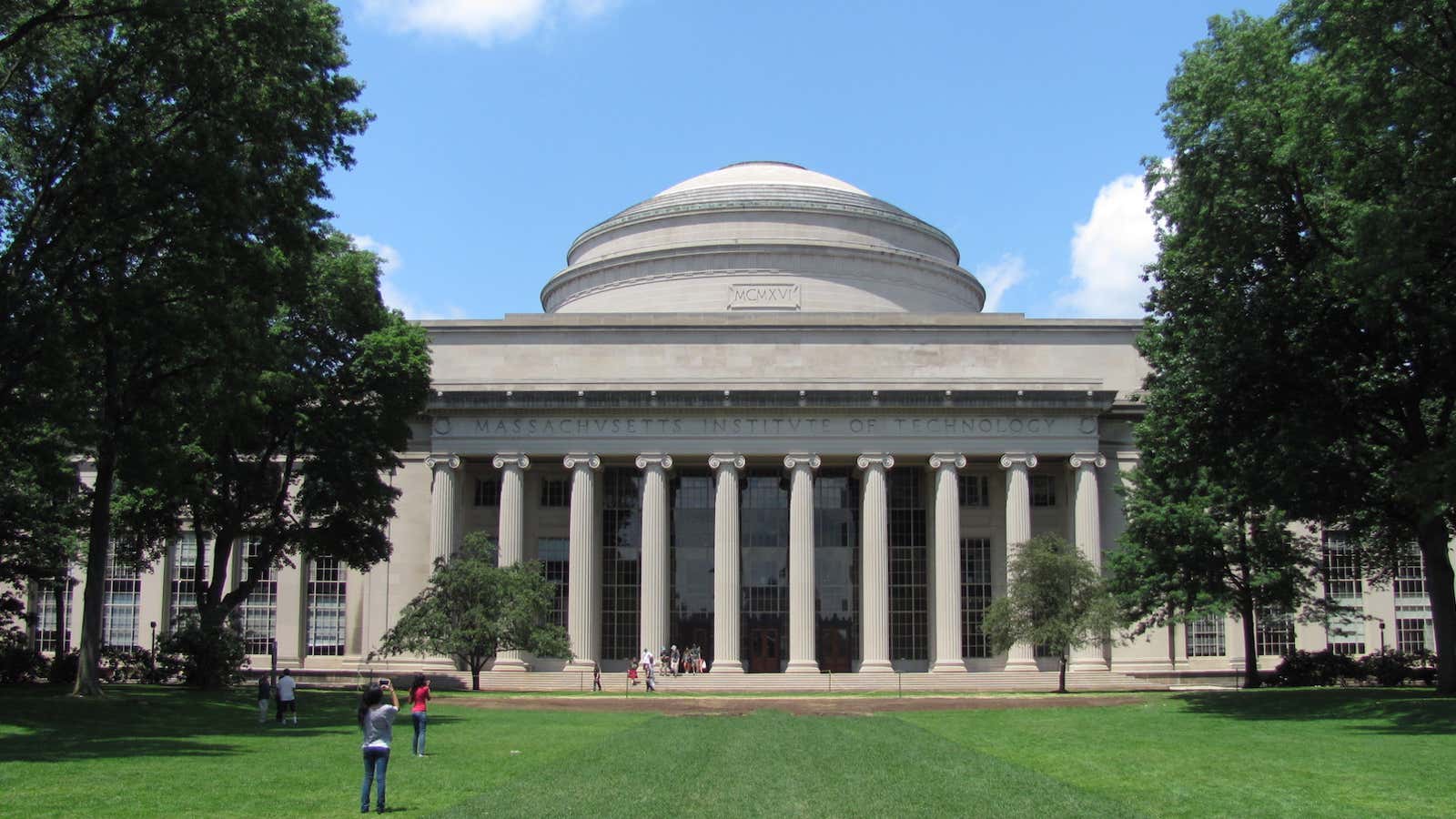In the Age of Innovation, Stanford University seems to be the lucky beneficiary of the startup buzz in Silicon Valley. The school attracts top-notch students and faculty with the promise of proximity to the nation’s highest concentration of venture capital, while investors flock to Palo Alto in search of the next big idea. But Stanford isn’t just capitalizing on its prime geographical location. The Silicon Valley we know today was created by Stanford faculty and alumni.
Now schools across the country are beginning to build similar entrepreneurial ecosystems. Successful businesses from far-flung universities, as well as increased infrastructure to support entrepreneurship on campus, are prompting alumni to look for ways to help their alma maters become the next Stanford.
“There’s tech and ideas that don’t reside in Silicon Valley,” Marc Sedam, the director of entrepreneurship at the University of New Hampshire, told Quartz. “People are starting to realize that.”
Dartmouth College is one poster child for this trend. A strong culture of entrepreneurship has developed there in the past 15 years, thanks to a not-for-profit investment fund started by alumnus John Ballard to fund companies founded by professors and students.
“I got to see the relationship between companies in Silicon Valley and Stanford,” Ballard, who settled in San Jose after attending Dartmouth, told Quartz. “The funds came back to Stanford from alumni. It was a fascinating thing to watch.”
The fund is called Angeli Parvi, which means “small angels” in Latin. Fittingly, Ballard and his fellow investors put in only $109,000 to launch the first venture they backed—a biotech company started by a Dartmouth engineering professor. This company was sold to Merck & Co. for the not-so-small sum of $400 million in 2007. Angeli Parvi helped the same professor and one of his students, Errik Anderson, start a second biotech company that year.
A farm boy-turned-business-magnate from Kansas, Anderson credits Dartmouth and the support of alumni like Ballard with his successful career. Between 2007 and 2013, he founded five more biotech companies, and his first is now valued at over $1.4 billion. Despite—or because of—his success, Anderson has chosen to remain in Hanover, New Hampshire, to be close to Dartmouth, where he serves on the board of Angeli Parvi and acts as a mentor to students. He is a frequent visitor to the on-campus entrepreneurship center that he helped raise $4.5 million to build.
“I owe a lot to Dartmouth,” he told Quartz. “I have a lot to give back.”
While Ballard and Anderson’s determination to growing entrepreneurship at their alma mater may seem unique, it’s become increasingly common in elite entrepreneurial circles. Alumni of the Massachusetts Institute of Technology run volunteer-based mentorship programs across the country for entrepreneurs who went to the school. The program at MIT, which also serves current students and faculty, has helped 3,300 entrepreneurs start almost 2,000 ventures, according to the director of the program at MIT, Sherwin Greenblatt.
Interest in the organization has climbed in the past few years as entrepreneurship has gained exposure and popularity, according to Greenblatt. Today, half of the program’s 160 mentors are MIT alum, and the other half are successful Boston-area entrepreneurs.
“The interest is so high now that we have a waiting list of people who want to become mentors,” Greenblatt said.
Back at Dartmouth, alumnus Mike Collins set up an angel fund similar to Angeli Parvi, but with a for-profit motive. He raised $1.5 million from Dartmouth alumni last year by offering investors a double bottom line: grow entrepreneurship at Dartmouth and make some money while you’re at it.
“People who have been successful entrepreneurs are less interested in writing blank checks to build a library today,” Collins told Quartz. Instead, they want to encourage budding entrepreneurs to follow their own paths. “They’re saying, ‘I want to build the next generation that looks like me,’” he said.
Capitalizing on this trend, Collins created a company to handle the organizational and legal aspects of setting up an angel fund to make it easier for alumni of other schools to pool their money and invest in companies started by faculty, students, and graduates. Alumni of the University of New Hampshire and Yale University have already started funds through Collins’ company, and Collins said he expects to start funds for Harvard, Princeton, and MIT next year.
At UNH, Sedam expects the fund to have a similar effect as Angeli Parvi has had at Dartmouth.
“Will it spark entrepreneurship on campus? I’m sure it will,” Sedam said. “It expands the value UNH can provide a student, and it’s validation that what we’re doing can attract money.”




